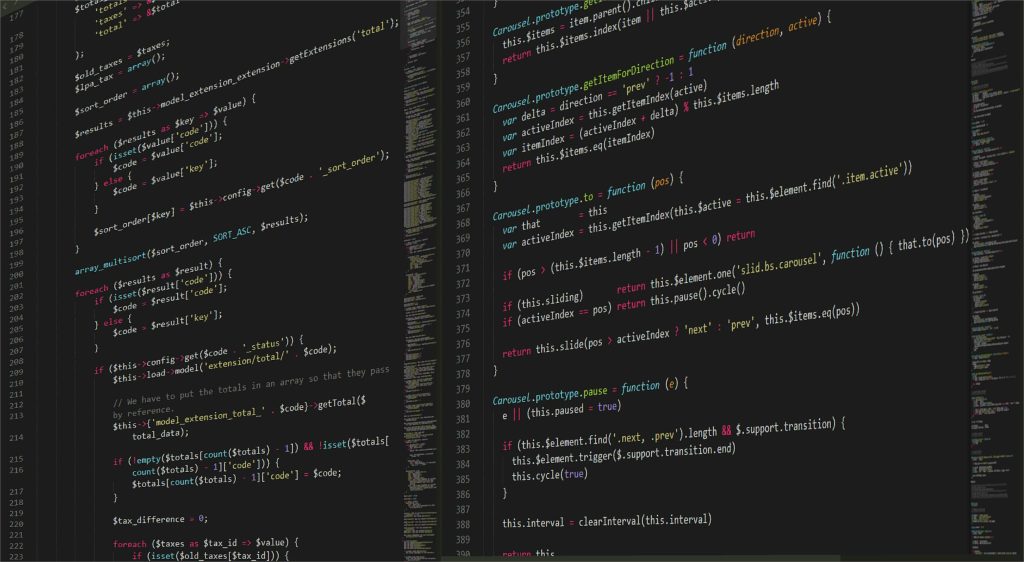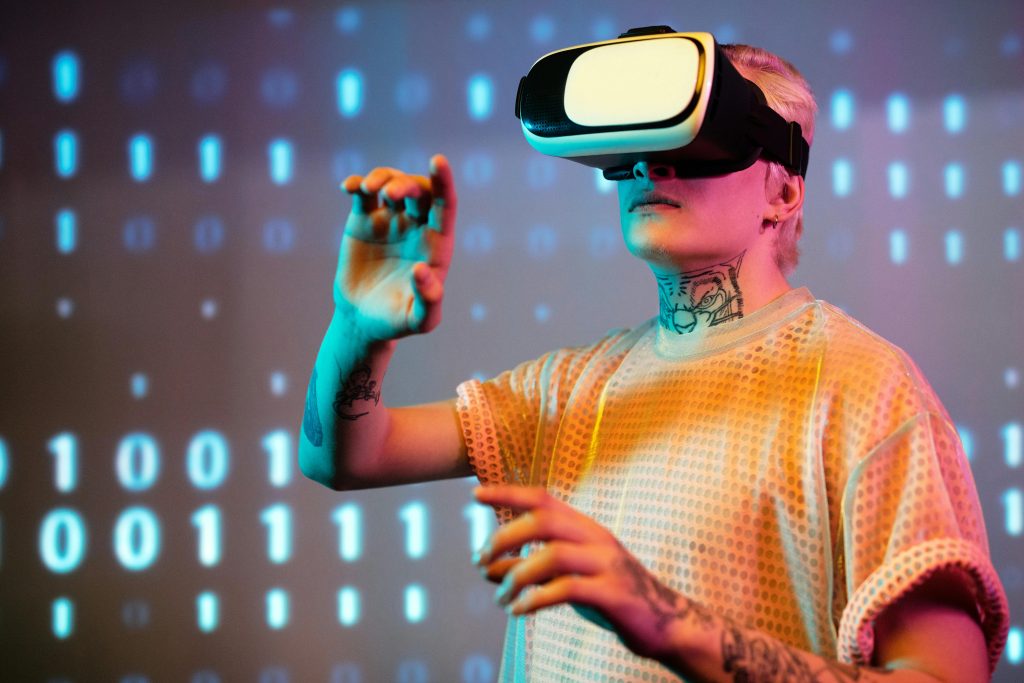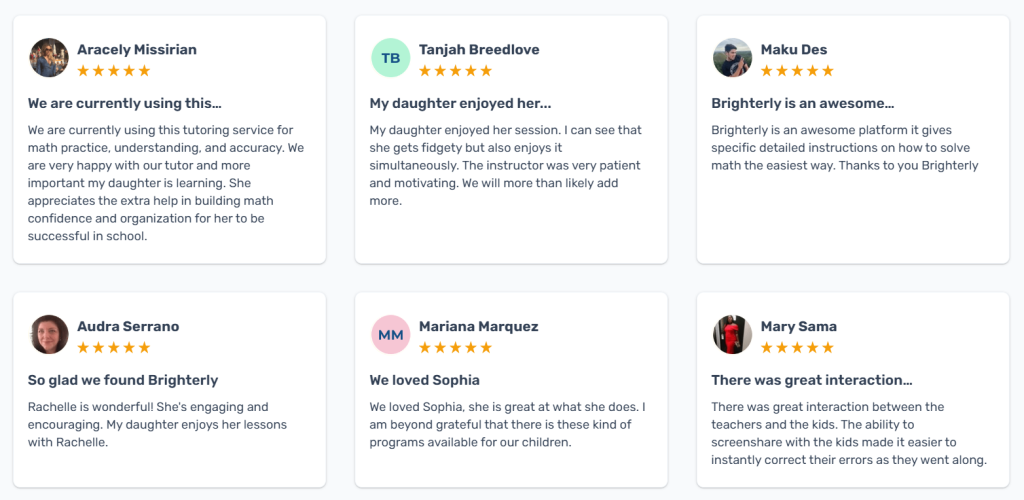How Is Math Used in Computer Science?
reviewed by Jo-ann Caballes
Updated on May 22, 2024
What kind of math is used in computer science? Generally, computer scientists need to be comfortable with binary mathematics, linear algebra, calculus, discrete math, and statistics.
Computer science is a broad field. The type of math needed depends on the specific career path.
Let’s see how math is involved in computer science. How it helps programmers create algorithms (like those used by Google) and develop abstract reasoning.
Does computer science have math?
Math is the foundation of computer science. Its knowledge is what can help to build fantastic software tools like Google Maps and ChatGPT.
In a computer science career, math is a core skill.
And to help your child improve their math skills, Brighterly is always here to support their learning journey. You can schedule a free demo lesson to assess your child's math level. You’ll receive personalized recommendations and advice. Our programs focus on “why” instead of just memorizing.
Computer science and math are deeply intertwined. Math provides the theoretical underpinnings for computing concepts. To understand computers and what makes them work, we must understand the math that makes up their anatomy.

So, what kind of math do you need for computer science? What type of math does computer science use? Binary mathematics, linear algebra, calculus, discrete mathematics, and statistics. These concepts are the building blocks of all the cool tech stuff we use today.
5 types of math used in computer science
Here are five key math concepts that fuel computer science:
Binary math
For computers, binаry mаth is the headliner. It’s the lifeblood of computer operations, relying on just two digits: 0 and 1. This simple duo is what lets computers juggle everything from your selfies to epic games.
When you snap a pic and hit save, your photo morphs into a string of zeros and ones, tucked away neаtly in the computer’s memory.
Linear algebra
Linear algebra is the powerhouse of machine learning. It’s the wizard behind jaw-dropping graphics, lightning-fast image processing, and rapid-fire calculations.
Think of it this way: when crafting 3D models and аnimations for video games, linear аlgebra is the mastermind pulling the strings.
Calculus
Calculus looks at how things change. Calculus is used in computer science to figure out how efficient algorithms are, make apps, create games, and keep things secure.
Take video games. Calculus helps us make them more realistic. It does it by figuring out how objects move and interact.
Discrete mathematics (decision mathematics or finite mathematics)
Discrete mathematics covers logic, probability, combinatorics, trees, set theory, algorithms, and graphs. Think of its problem-solving techniques as the secret sauce for building complex software. Concepts like number theory, cryptography, and graph theory are the basis of computer security.
Let’s take bank apps. They use smart algorithms (which rely on math concepts) to keep your money safe and make sure it’s really you logging in.
Statistics
Statistics helps to collect, analyze, and make sense of data. Think data mining, speech recognition, and artificial intelligence.
Ever wonder how Siri knows what you’re saying? Basically, she listens to your voice and turns it into code. Then, she figures out the keywords to respond. Math makes it possible.
What math is used in computer science and why it’s crucial for future programming career
- Discrete mathematics is the basis of computer science
- Math helps us understand algorithms
- Math teaches us to communicate in an abstract way
- Mathematics helps develop sharp analytical skills
- Math concepts are required in many disciplines of computer science
Jobs in computer science really dig into math.
To make something like Google Translate, you gotta get math. Algorithms that translate text lean on math concepts (probability and statistical modeling) to pick the best translation.
So, exactly why does computer science require so much math?
Discrete mathematics is the basis of computer science
Nifty numbers and quirky concepts in discrete mathematics form the backbone of computer science. This field dives into logic, set theory, combinatorics, graphs, probability, number theory, and algebra. It may sound like a mouthful, but these are the fundamental puzzle pieces of coding.
If your kiddo’s eyeing a career in computer science, mastering these goodies is a must. They help to understand how computers think and do all those awesome things.
Math is the key to unlocking the secrets of algorithms
Algorithms are like recipes for computers. They’re a set of instructions that tell a computer how to do something. For example, to sort a list of numbers or find a word in a document.
Programming and computer science require math to develop efficient algorithms. And math teaches how to create these step-by-step instructions. This is super important for making software.
Math teaches us to communicate in an abstract way
In computer programming, we use abstract languages (like codes and symbols) to show processes and commands. It might seem tricky if you’re not used to it
Programming language is a lot like the math language students learn. From simple equations to fancy formulas, learning math helps to communicate using abstract ideas.

Mathematics helps develop sharp analytical skills
Programmers need to assess problems, analyze their work, and fix errors. It’s similar to how students analyze math equations.
Math prepares them for debugging. Despite modern tools, the ability to understand program flow and debug manually is invaluable.
Math concepts are required in many disciplines of computer science
Computer science includes areas like operating systems, databases, networking, artificial intelligence, data analytics, and many more. Computer scientists use all different types of math, from probability and statistics to logic and graph theory. It all depends on the problem at hand.
Fields like AI and ML need a good understanding of linear algebra, multivariable calculus, and probability theory.
History of math in computer science: from origins to modern applications
Since the start, math has been super important in shaping computer science.
Back in the 17th century, a German mathematician named Gottfried Wilhelm Leibniz came up with something big: the binary number system. It’s the foundation of digital computers.
Algorithms are another big thing made possible by math. Algorithms are like step-by-step instructions that computers follow to solve problems. They’ve been around in math for ages. But they have become super important in computer science.
In the 20th century, math played a huge role in computer graphics. Geometry, linear algebra, and transformations helped make 3D models and show images and videos on screens.
And today, math is extremely important in computer science. Especially for artificial intelligence. AI uses complex math concepts (like statistics, probability, and calculus) to make sense of massive amounts of data.
Machine learning, which is part of AI, relies on math algorithms to train models (and make predictions). Truly understanding what math is in computer science means seeing how important it is in creating algorithms, as well as solving problems.

AR & VR are like math’s playground, shaping 3D graphics, tracking nimble movements, and crafting immersive realms. For instance, linear algebra juggles 3D object manipulation while calculus choreographs motion.
Math’s fingerprints are all over computing. It’s the mastermind behind problem-solving, the wizard of data analysis, and the architect of virtual realities. Math isn’t just a helper; it’s the magician transforming our everyday lives.
So, let’s learn math!
Computer science cozies up to math like a long-lost sibling. Math is the trusty compass that guides computer scientists through the tangled jungles of algorithms, helping them gauge efficiency with finesse.
To truly dazzle in the realm of computer science, one must possess a firm grasp of mathematical principles. Basic math prowess is the bedrock upon which a computer scientist builds their expertise. A computer scientists needs to have basic mathematical knowledge to excel in the field.
Mastering math is the golden ticket to your child’s future as a programming virtuoso. Our dedicated teachers are always on hand to encourage and ignite that spark of inspiration.

Snag a spot for a free trial lesson to gauge your kid's math mojo! Our savvy tutors will dish out tailored tips to boost their skills.
Our lessons sprinkle math with pizzazz for the little ones. By infusing fun into math, we plant the seeds for a lifelong love of learning. This tactic helps youngsters grab onto math concepts with gusto.














